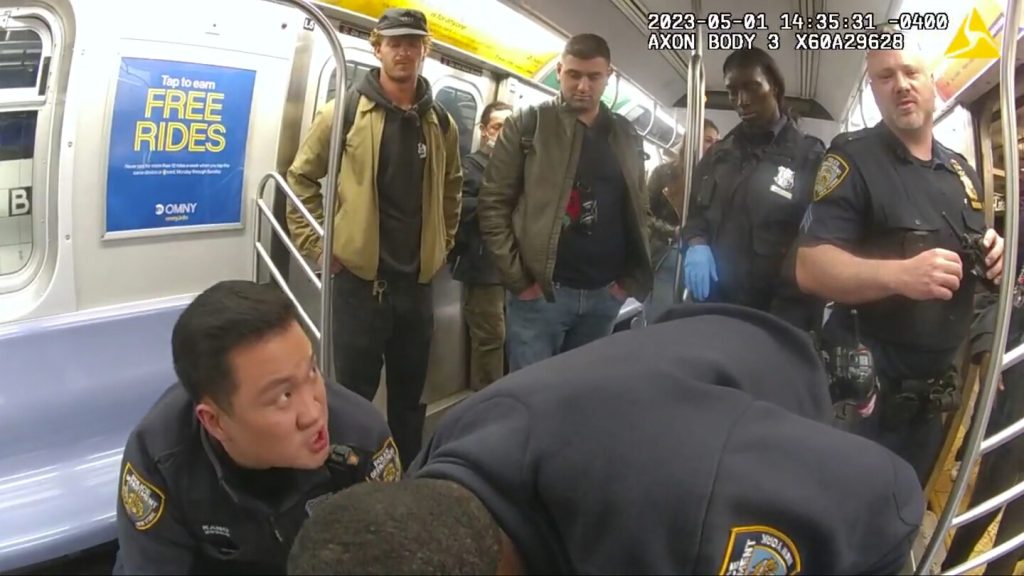The manslaughter trial surrounding the death of Jordan Neely, a Black man, at the hands of Marine veteran Daniel Penny, a white man, has begun in New York. Neely was restrained by Penny in a subway train in 2023 after making threats and alarming passengers. The jury was shown videos of the incident, giving them a firsthand view of the deadly chokehold. Neely’s family has been emotional during the trial, with his father having to leave the courtroom during the video playback. The encounter has raised questions about self-defense, vigilantism, and the intersection of race, homelessness, mental illness, and drug use.
Neely, a 30-year-old man with a history of mental health and drug issues, had a tumultuous life that led him to the subway train where he encountered Penny. Penny, a 25-year-old architecture student and former Marine, has been charged with manslaughter for Neely’s death. Prosecutors argue that Penny acted recklessly, causing Neely’s death, while Penny’s defense maintains that he was acting in self-defense to protect himself and other passengers from Neely’s threatening behavior. The incident has ignited debates over how individuals should step in during volatile situations on public transportation.
The videos presented in court showed the moments leading up to Neely’s death, with witnesses recalling the tense atmosphere in the subway train as Neely made alarming statements. One witness, high schooler Ivette Rosario, described feeling frightened by Neely’s angry tone and worried about the situation escalating. The footage captured by Rosario and another bystander, Juan Alberto Vázquez, shows Penny restraining Neely with a chokehold, despite calls from onlookers to release him. The defense argues that Penny felt compelled to act when Neely made threatening gestures towards a woman with a stroller.
While prosecutors acknowledge that Penny may have initially been trying to stop Neely’s menacing behavior, they argue that he went too far in holding onto the chokehold for an extended period, even after it became clear that Neely was no longer a threat. Penny’s defense team claims that he was trying to prevent Neely from escaping and potentially harming others, emphasizing that Neely was fighting back during the altercation. The medical examiner’s finding that the chokehold led to Neely’s death has been challenged by the defense, further complicating the case.
The trial has reignited discussions about race, mental health, and public safety in New York City, with supporters of both Neely and Penny closely following the proceedings. Neely’s family has expressed their grief over his death, attributing it to a series of traumatic events in his life that led to his struggles with mental health and substance abuse. As the trial continues, the jury will have to consider the conflicting narratives presented by the prosecution and defense, weighing the evidence and witness testimonies to determine the outcome of the case and deliver justice for Neely’s tragic death.














